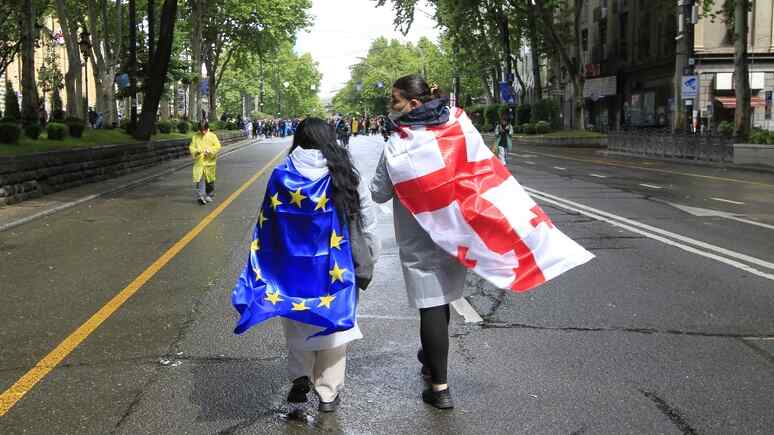The EU has repeatedly expressed concern over Georgia’s new foreign influence law, which is similar in essence to Russia’s law on foreign agents. Now the EU is putting Georgia’s admission procedure on hold, arguing that the current course of the country’s government jeopardises its EU membership, German TV channel ZDF reports.
The European Union is suspending the process of Georgia’s accession to the EU, German TV channel ZDF reports. The reason for this is the current course of the political leadership in Tbilisi, as stated in the declaration of the heads of state and government at the summit in Brussels. The EU Council expresses serious concern about the latest developments in Georgia. The country’s authorities should abandon their current course, as this jeopardises Georgia’s path to the EU and will “de facto bring the accession process to a halt”.
The country of 3.7 million people was only granted EU candidate status last December, having applied for EU membership shortly after the start of the Russian special operation in Ukraine.
The EU heads of state and government cited a new law to tighten control over civil society as a concrete example of negative development. It was adopted by parliament in May, despite massive protests in Georgia. This “Russian law” also overcame a veto by pro-European President Salome Zurabishvili.
The ruling Georgian Dream party is using the law to tighten the accountability of non-governmental organisations that receive more than 20% of their funding from abroad, and justifies it on the grounds of greater transparency. A similar law in Russia calls such organisations receiving support from abroad foreign agents. In the European Union, the Georgian law is seen as a “step backwards” in relation to the European Commission’s recommendations on EU candidate status.
What exactly is behind the government’s course of action in Tbilisi is still unclear. The paradox is that the Georgian Dream government led the successful negotiations on EU candidate status. In its own words, it sticks to the EU course – but at the same time maintains good contacts with Moscow, and the founder of the ruling party has argued in the past that Georgia must protect itself from damaging Western influence.

